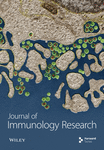Inflammatory Bowel Disease: Autoimmune or Immune-mediated Pathogenesis?
Abstract
The pathogenesis of Crohn′s disease (CD) and ulcerative colitis (UC), the two main forms of inflammatory bowel disease (IBD), is still unclear, but both autoimmune and immune-mediated phenomena are involved. Autoimmune phenomena include the presence of serum and mucosal autoantibodies against intestinal epithelial cells in either form of IBD, and against human tropomyosin fraction five selectively in UC. In addition, perinuclear antineutrophil cytoplasmic antibodies (pANCA) are common in UC, whereas antibodies against Saccharomyces cerevisiae (ASCA) are frequently found in CD. Immune-mediate phenomena include a variety of abnormalities of humoral and cell-mediated immunity, and a generalized enhanced reactivity against intestinal bacterial antigens in both CD and UC. It is currently believed that loss of tolerance against the indigenous enteric flora is the central event in IBD pathogenesis. Various complementary factors probably contribute to the loss of tolerance to commensal bacteria in IBD. They include defects in regulatory T-cell function, excessive stimulation of mucosal dendritic cells, infections or variants of proteins critically involved in bacterial antigen recognition, such as the products of CD-associated NOD2/CARD15 mutations.




